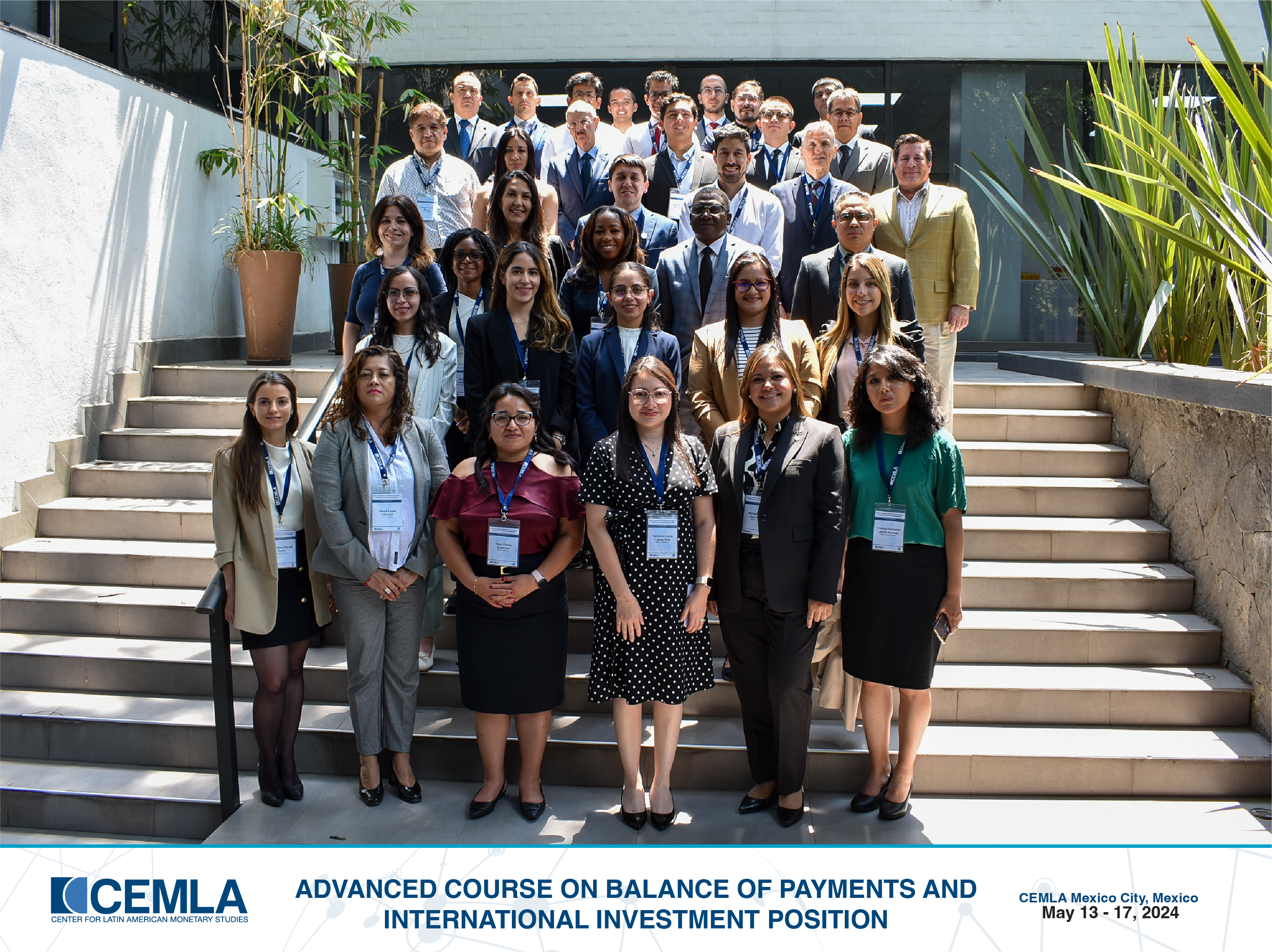

Disponible en
Español
![]()
Advanced Course on Balance of Payments and International Investment Position
May 13 - 17, 2024
CEMLA Mexico City, Mexico
The course was held from May 13 to 17, 2024 at the CEMLA facilities in cooperation with the Statistics Department of the International Monetary Fund (IMF). The various presentations reviewed concepts, data sources and techniques for compiling Balance of Payments and International Investment Position statistics, as well as their application to address complex methodological problems. During the course, some presentations were made aimed at exchanging experiences from the different countries attending or represented. Likewise, workshops were held designed to integrate statistics from the external sector and analyze the results.
The course began with a review of the conceptual framework and accounting principles of the Balance of Payments (BPM6), in accordance with the sixth manual of the IMF. The different accounts that constitute the external accounts were detailed, such as the accounts of goods, services, primary income, secondary income and the capital account. Some presentations were made on direct investment and the importance of all countries carrying out the Coordinated Survey of Direct Investment and the Coordinated Survey on Portfolio Investment was emphasized. The event continued with various presentations on other investments, reserve assets, portfolio investment and financial derivatives.
Likewise, the role of the International Investment Position and the external debt within the external accounts was detailed. Some recent topics were addressed, such as the digitalization of currencies, globalization and some aspects were mentioned about the update of the Balance of Payments and International Investment Position Manual that will be released next year.
Finally, the congruence that should exist between the external sector statistics and the macroeconomic information derived from the national accounts was analyzed. Throughout the course, opinions and experiences were exchanged on the topics addressed in the course.
There were 36 participants from 14 countries in attendance, in addition to the IMF lecturers.
International Monetary Fund
- Silvia Amiel
- Marcelo Dinenzon

